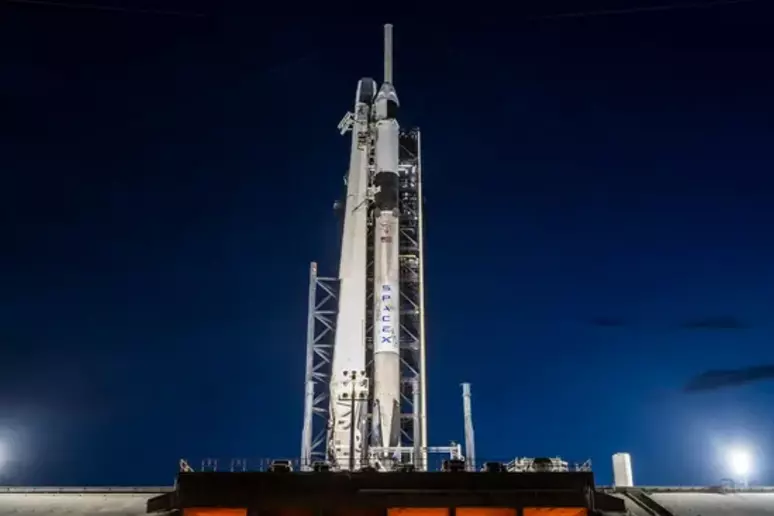The Ax-4 private space mission to the International Space Station will remain grounded after SpaceX’s Falcon 9 rocket suffered a technical malfunction that forced a second launch delay in as many days.
Initially postponed from June 10 to June 11 due to poor weather, the mission was hit with a fresh setback after a liquid oxygen leak was detected aboard the Falcon 9, one of the two core propellants powering its engines.
The leak was first identified on June 8 during a static fire test at Kennedy Space Center, when the rocket engines were briefly ignited while the vehicle remained anchored to the launch pad. Both SpaceX and Axiom Space confirmed the anomaly, though SpaceX CEO Elon Musk has yet to comment publicly.
The issue is not entirely new. The same Falcon 9 stage reportedly showed a similar leak during its only previous flight—this time during atmospheric reentry. “It’s possible the leak was not fully repaired or properly identified,” said Bill Gerstenmaier, SpaceX’s vice president for build and flight reliability.
The Ax-4 mission, the fourth such endeavor organized by Houston-based Axiom Space, aims to ferry four astronauts to the ISS for a ten-day research-intensive stay. The crew includes mission commander Peggy Whitson, a veteran NASA astronaut; Shubhanshu Shukla of India; Slawosz Uznanski-Wisniewski of Poland, representing the European Space Agency; and Tibor Kapu of Hungary.
For India, Poland, and Hungary—none of which have launched astronauts in over four decades—Ax-4 marks a historic first commercial trip to the ISS.
Once in orbit, the crew is expected to carry out over 60 experiments across a range of disciplines including microgravity research, human physiology, materials science, Earth observation, and advanced space technologies. The research effort spans 31 countries, making this the most ambitious scientific initiative in Axiom Space’s history.
No new launch date has been announced.











